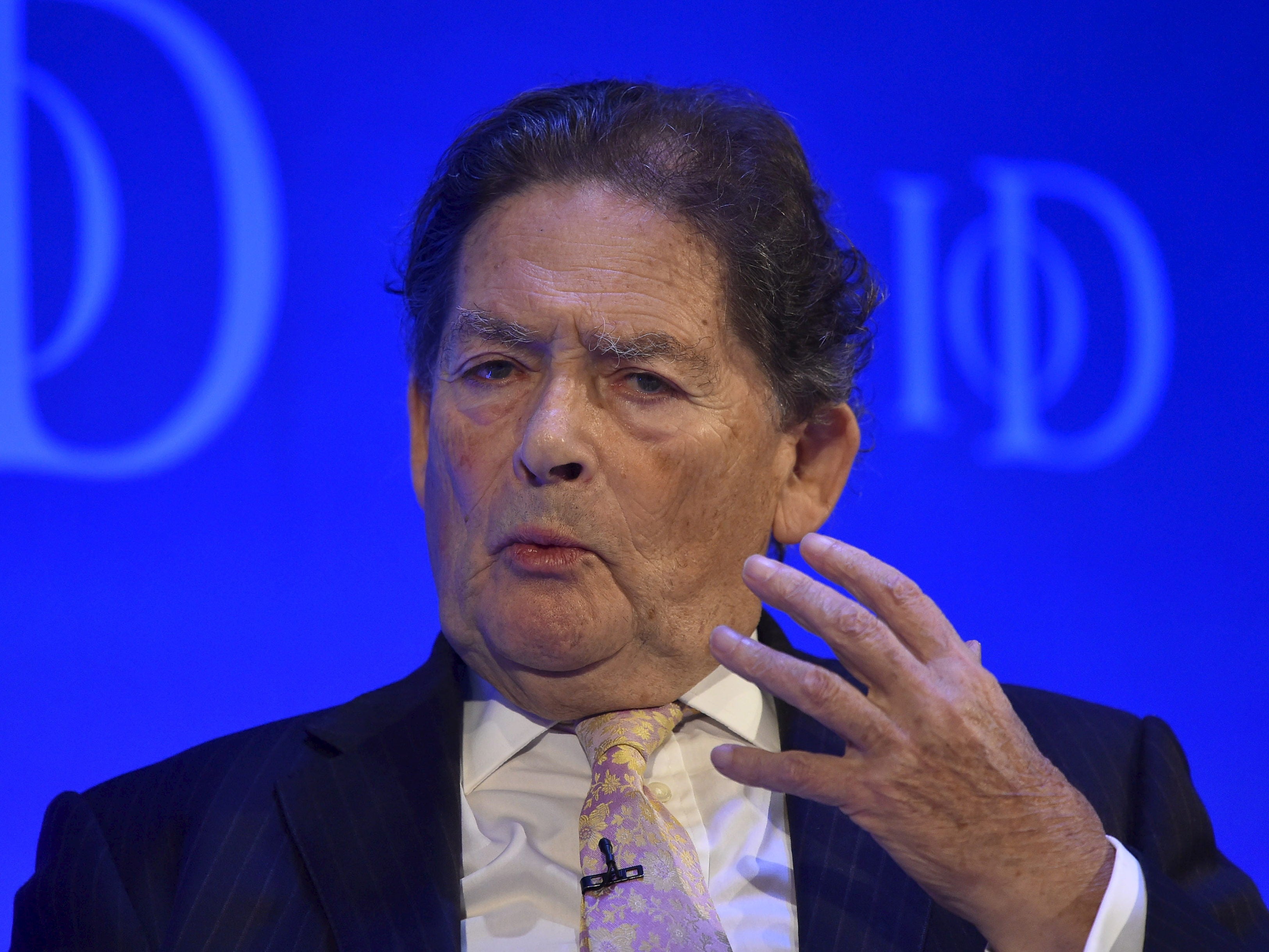
BBC Radio 4’s Today programme broke accuracy guidelines in an interview with a prominent climate change sceptic, Ofcom has ruled.
There were “significant inaccuracies” in an interview with former Chancellor of the Exchequer Lord Nigel Lawson which took place on 10 August last year and received two Ofcom complaints.
Presenter Justin Webb interviewed Lord Lawson about the economics of renewable energies and the premiere of Al Gore’s An Inconvenient Sequel, a film about the former US vice president’s battle against climate change.
Lord Lawson (pictured) claimed “all the experts say there hasn’t been” an increase in extreme weather events.
He also said that according to official figures “during this past ten years… average world temperature has slightly declined”.
Ofcom ruled: “Neither statement was correct, or sufficiently challenged during the interview or subsequently during the programme.”
The BBC previously admitted it “should have challenged” Lord Lawson’s claims but said there were four other guests present on the programme to offer “different views”.
The BBC said it does not exclude minority views from its content, but aims to ensure sceptical opinions are not treated as if they are on an equal footing with the scientific consensus.
Ofcom acknowledged that the BBC partially upheld the complaints about the programme as breaches of the BBC’s own editorial guidelines, apologised to the complainants, and took a number of actions to address the breaches.
These included publishing a BBC News story online highlighting criticisms of and inaccuracies in the interview and examining some of Lord Lawson’s more contentious claims on the Today programme the following day.
The BBC also published a response to complaints on the BBC Complaints website, featured several complainants in Radio 4’s Feedback programme on 20 August, and reported its full response and action taken to the BBC News Group Board and the Editorial Standards and Complaints Committee.
However Ofcom’s “most significant concern” was that the BBC identified a second breach of standards in an item from 2014 – a previous appearance of Lord Lawson on the Today programme to discuss the same topic, on that occasion alongside a leading climate change scientist.
The BBC chose not to engage Lord Lawson in discussion with a scientist on the second occasion.
However Ofcom said neither programme sufficiently explained the minority position of Lord Lawson’s views in his introduction, meaning listeners received no clear signal that his view on the science of climate change runs counter to the weight of scientific opinion.
The Ofcom ruling said: “This omission meant listeners were not given the full facts about Lord Lawson’s stance on climate change. This was significant as his contribution appeared in the context of wide-ranging discussions on climate change throughout the programme.”
Ofcom said not enough importance had been placed on the possibility that a repeat of the 2014 breach may occur.
It added: “We acknowledge an editorial decision was taken not to interview Lord Lawson alongside a scientist, and the efforts made in the planning of the 10 August 2017 interview to tightly focus the discussion on the economics of climate change.
“However, given Lord Lawson’s well-known sceptical stance on the broader science of climate change, and the fact these issues were addressed in earlier interviews on the programme, the editorial team could have reasonably anticipated there was a risk that Lord Lawson might raise these arguments.
“In our view, the BBC should have planned for that eventuality and the presenter should have been prepared to provide challenge and context to Lord Lawson’s views as appropriate. The BBC’s failure to do this led to significant inaccuracies being broadcast in the interview with Lord Lawson in the programme on 10 August 2017.
“Critically, these inaccuracies were allowed to stand without challenge or clarification during that broadcast.”
Ofcom therefore concluded the programme was in breach of Rule 5.1, which says: “News, in whatever form, must be reported with due accuracy and presented with due impartiality”.
Ofcom also investigated whether the BBC was in breach of Rule 5.2, which says significant mistakes in news should normally be acknowledged and quickly corrected on air.
Because the Today programme team examined some of Lord Lawson’s more contentious and inaccurate claims in an item the following day and on the BBC News website, the BBC was not found to be in breach of this rule.
Picture: Reuters/Toby Melville
Email pged@pressgazette.co.uk to point out mistakes, provide story tips or send in a letter for publication on our "Letters Page" blog







